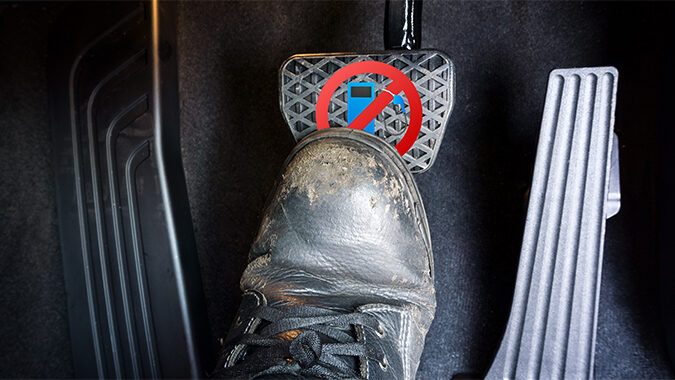As NJBIA continues its campaign to stop Gov. Phil Murphy’s proposed ban of the sale of new gas-powered cars by 2035, there are many who also oppose the mandate, but might not get the association’s urgency.
2035 is 12 years away and Murphy will no longer be governor then – so what’s the big deal, they ask?
But as NJBIA Deputy Chief of Government Affairs Officer Ray Cantor notes, the rule can be adopted by the end of this year.
And with it comes mandated, cost-intensive targets that begin as soon as model year 2027 cars.
“By model year 2027, New Jersey will be required to have 43% of new car sales be electric vehicles with some hybrids allowed,” Cantor said. “And that percentage goes up incrementally each year leading up to 2035.
“If consumers don’t buy enough EVs, dealers will be limited on how many gas-powered cars they can sell thus making it hard to buy any new cars. Dealers, of course, will go out of business if they don’t have new cars to sell. So that’s the first stage of the near-term, real-world impacts.”
The next stages, Cantor said, will result from changes in supply and demand that will increase the costs of new and used gas-powered cars.
“When the Murphy administration tells you that used gas powered cars will still be available, what they aren’t telling you is the cost of those used cars will go up significantly making them too expensive for many New Jerseyans,” Cantor said.
“In fact, there will be a significant subset of residents who can’t afford EVs and all the added costs that go along with owning one. The runway to that complete ban changes the marketplace so there’s much more demand on the vehicle fleet for internal combustion engines. The prices for those gas cars increase as a result.”
Losing My Transportation
Cantor said he believes the Murphy administration is also not addressing the potential consequences of the proposed gas car ban on everyday people who just want to get to work every day.
“Let’s face it – reliable transportation is a necessity for so many people and increased automobile prices can really impact our most vulnerable residents,” he said. “You can’t just tell whole communities that their only transportation options are to take a bus, ride-share, or get a bike.”
“Think about low- and middle-income families, teenagers, and seniors being not able to afford their transportation or having no means of transportation available. You’re impacting their ability to get to work, to school, to food stores, or even to their doctor. We really wish the administration would think these impacts through before going forward with the ban.”
A Difficult Fix Later
Many commenters on NJBIA’s Facebook page have opined that because Murphy will no longer be the governor come 2026, the gas car ban won’t stick.
Cantor says not so fast.
“There is certainly no guarantee that the next administration won’t carry on the same policy,” he said. “A rule such this, which is being done without the Legislature, has to be proactively undone and it is not easy.”
A case in point can be found in Viriginia. Under Democratic Gov. Ralph Northam in 2021, Virginia followed California’s lead by banning the sale of gas-powered cars by 2035.
A bill supported by current Republican Gov. Glenn Youngkin that would repeal the California rule, however, died in the Legislature in June.
“Beyond trying to undo a rule, there are businesses in the automobile and gas industries that make decisions in the short term about what their long-term financial investments decisions are going to be,” Cantor added. “Should this rule get to the finish line, those businesses are automatically disincentivized to stay in New Jersey.”
NJBIA’s Campaign
NJBIA launched a campaign last Saturday, Sept. 2, to stop the Murphy administration’s proposed ban of the sale of new gasoline-powered cars by 2035 with a plane banner over Jersey Shore beaches urging residents to “Stop NJ’s Gas Car Ban.”
Residents are encouraged to visit www.njbia.org/ev to voice their opposition to the ban with their local representatives.
“Our lawmakers must understand the real-world impacts this ban will have on residents both in the near-term and the long-term,” Cantor said. “This ban is neither affordable for our residents nor attainable for the state as a whole.”

